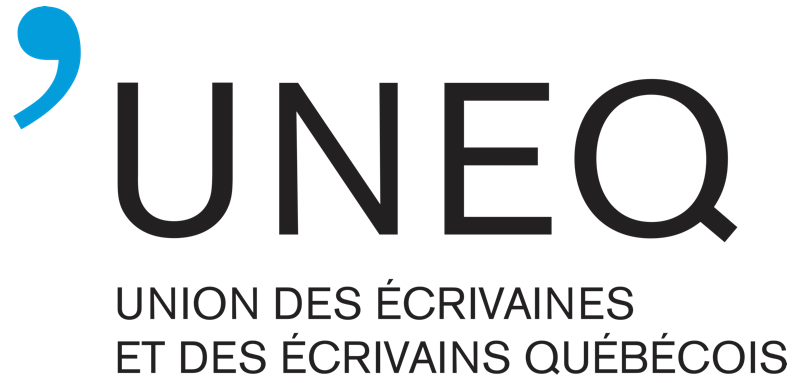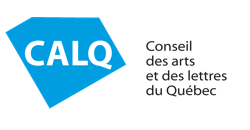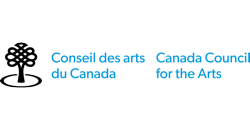Responding to Injustice with Even More Injustice
By Suzanne Aubry, President, Union des écrivaines et des écrivains québécois (UNEQ)
Montreal, March 8, 2018 — Authors were dealt a crippling blow when, on 16 February of this year, all school boards of Ontario, as well as the ministries of education for all provinces and territories — excluding Quebec, Ontario and British Columbia —, filed an action against Access Copyright, claiming overpayment of royalties during 2010-2012. Worse still, they are demanding a retroactive compensation of $27.5 million for those alleged overpayments.
This constitutes an attack without precedent on the right of the author. Not only do these institutions refuse to recognise the legal tariffs instituted by the Copyright Board of Canada, but they are also dragging Access Copyright through an extremely long and costly procedure, undoubtedly in the cynical hope of exhausting the resources of the management organisation and of the authors, for whom it is negotiating agreements, and forcing them to withdraw.
This despite the fact that last year the Federal Court found that York University did not have the right to photocopy works at will without the authorisation or the remuneration of copyright holders.

Although these legal proceedings were started outside of Quebec, they concern us primarily from a feeling of solidarity, but also because they aim at reducing the right of the author, which could have adverse consequences on our own situation in Quebec.
From the time the conservative government combined the concept of education with the ‘fair use’ doctrine in its modification of the Copyright Act in 2012, authors across Canada have lost tens of millions of dollars. Many educational institutions in English-speaking Canada abandoned their licences with Access Copyright. The payments made by this management organisation decreased from nearly $11 million in 2016 to $5 million in 2017.
In Quebec, Laval University continues to refuse to sign an agreement with Copibec, which covers the reproduction of works, thus dragging the management organisation into a long and costly legal battle (see our file.)
This headstrong behaviour on the part of school boards and ministries, who are expected to ensure the education of the young, is surprising. Why such perseverance in not acknowledging the authors’ effort by paying a fair remuneration for the use of their work?
It is at the very least unusual for school boards and Ministries of Education to refuse to submit to a Copyright Board of Canada decision, which set the small fee of $2.50 per student for copyrights in 2013-2015. That these institutions should, moreover, claim from Access Copyright a compensation of $27.5 million seems like a malicious and unfair attack on the principle of remuneration of authors and publishers for the use of their works which comes, just by chance, at a time the Canadian government is preparing to revise the Copyright Act. Cynical, one could say?
All creators of Quebec should join forces with their Canadian colleagues to denounce loudly and clearly this unjust and absurd action. The UNEQ fully supports Access Copyright and the Writers’ Union of Canada in this fight which is becoming long and more difficult.
About the UNEQ
Founded in 1977, the Union des écrivaines et des écrivains québecois brings together more than
1,600 poets, novelists, playwrights, essayists, writers for young audiences and authors of
scientific and practical works. The UNEQ works to promote and disseminate Québécois
literature in Quebec, elsewhere in Canada and abroad, as well as to defend the socioeconomic
rights of writers.
— 30 —
Source : Union des écrivaines et des écrivains québécois (UNEQ)
Contact : Jean-Sébastien Marsan, 514 849-8540 #225 or 1 888 849-8540 #225 | jsmarsan@uneq.qc.ca
See also:
- Access Copyright press release (February 22, 2018)
- The Writers’ Union of Canada press release (February 23, 2018)
- Provincial ministries of education file suit against Access Copyright for $27.5 million in fees, Quill & Quire (February 26, 2018)
- Take notice copyright infringers: Canadian courts still think intellectual-property laws matter, Financial Post (February 27, 2018)
- The Association of Canadian Publishers press release (February 28, 2018)
- Canadian Publishers Blast School Boards’ Lawsuit of Access Copyright, Publishing Perspectives (February 28, 2018)
- Canadian Educators Sue Copyright Organization, Publishers Weekly (March 5, 2018)
- The International Authors Forum, which represents 63 organizations worldwide (including UNEQ) with nearly 700,000 authors, sign a letter asking the Parliament of Canada to restore author rights and impose licensing regulation on educational copying (March 7, 2018)




